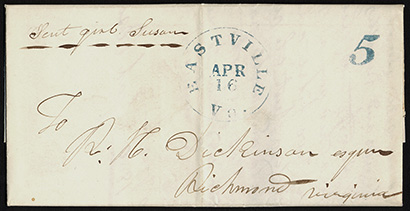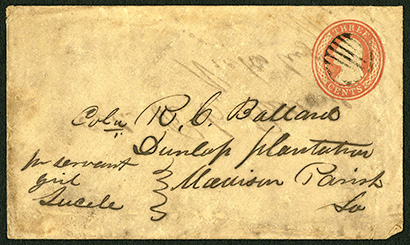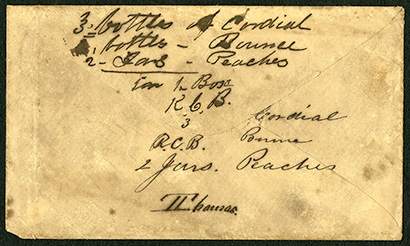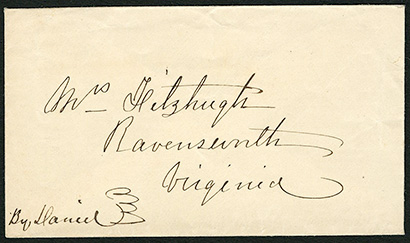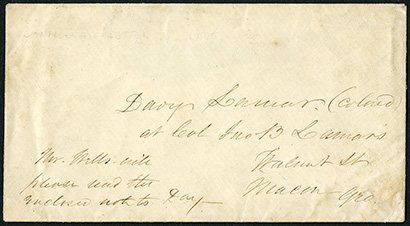Before the introduction of home mail delivery, slaves often carried letters to and from the post office. Slave-carried mail is usually identified by a notation—called an endorsement—that also served as a travel pass. These mail messengers could be an important source of news if they overheard discussions during their travels. Slaves sometimes carried letters directly to the recipient, bypassing the postal system entirely. This was often the case when the letter was accompanied by a parcel, since post offices did not handle domestic package mail until 1913.
“Sent girl Susan” stampless folded letter, April 17, 1850
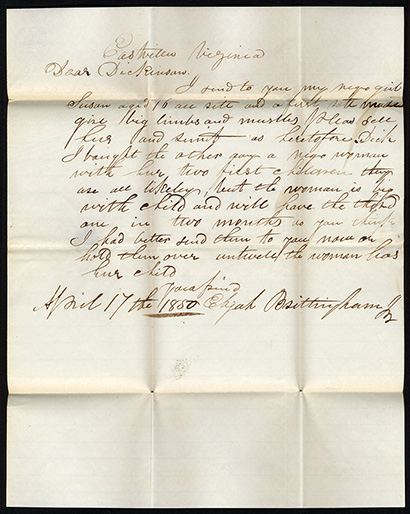
I send to you my negro girl Susan aged 16 all rite and a first rate girl big limbs and muscles please sell her and remit...
Susan was probably unaware that the letter she carried to the Eastville, Virginia post office contained arrangements for her to be sold to a slave dealer in Richmond.
